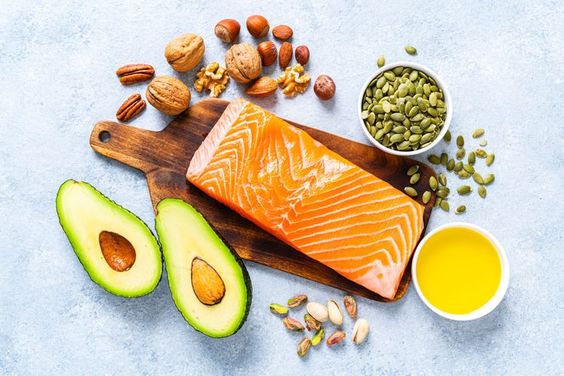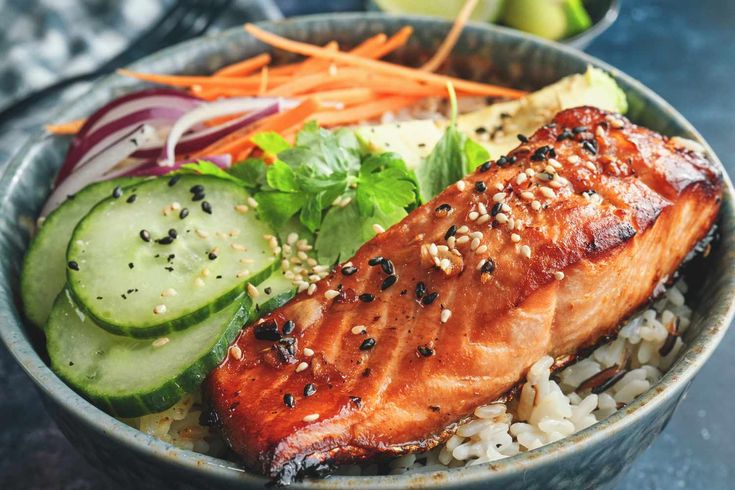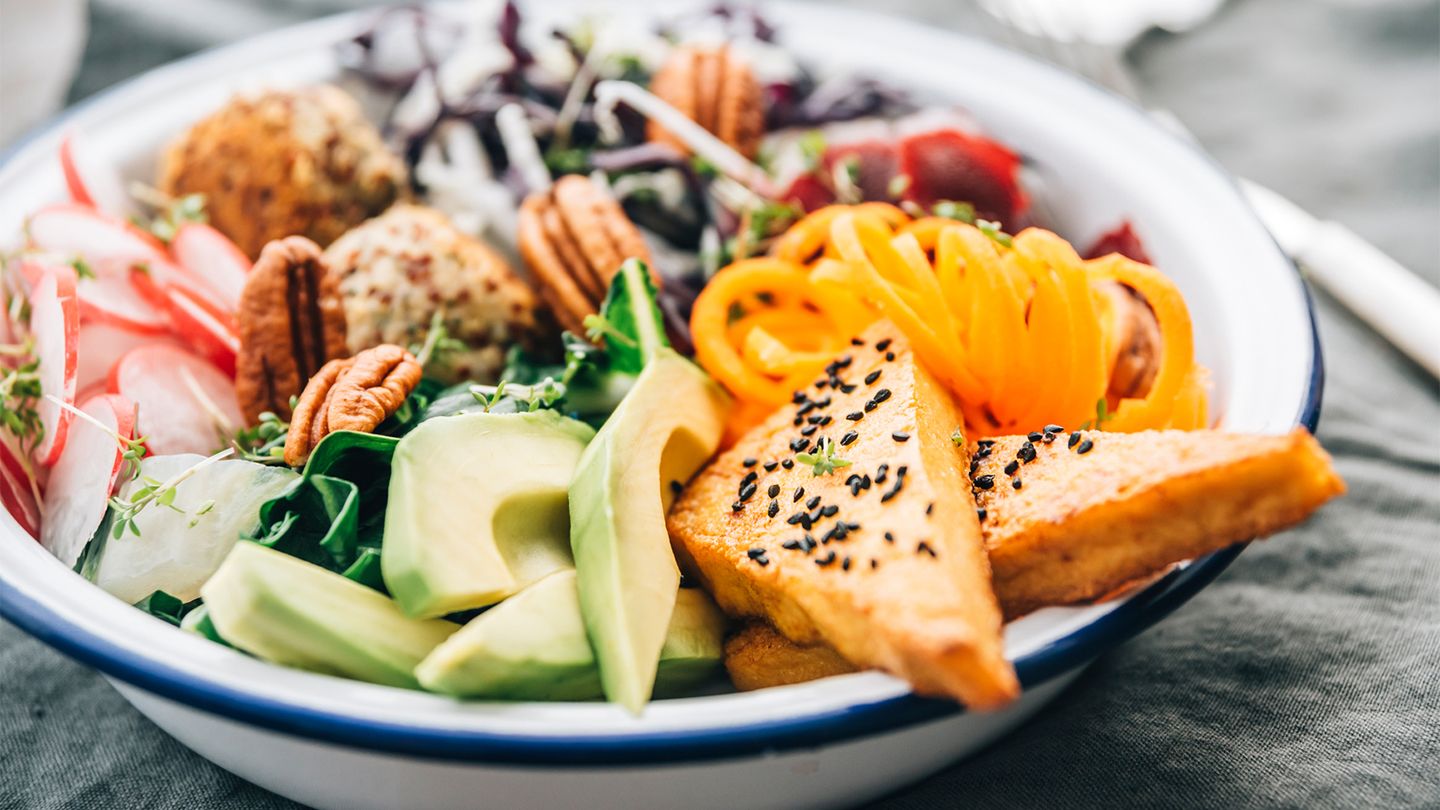The Anti-Inflammatory Diet focuses on foods that can help combat inflammation in your body. By choosing the right foods, you can actively reduce inflammation, which is linked to various chronic diseases. This diet encourages you to eat whole, unprocessed foods that are rich in nutrients and antioxidants.
Inflammation can be a normal response to injury or infection, but chronic inflammation can lead to serious health issues. By understanding which foods promote inflammation and which ones help keep it in check, you’re taking a significant step towards better health. This dietary approach is not just about what you eat; it also emphasizes a balanced lifestyle that can enhance your well-being.
You can find numerous delicious options to include in your meals, from colorful fruits and vegetables to healthy fats. With some simple changes, you can create a diet that supports your body and improves your overall health.
Key Takeaways
- The Anti-Inflammatory Diet promotes whole foods rich in nutrients.
- Reducing chronic inflammation can lower the risk of various diseases.
- Lifestyle changes can enhance the effects of an anti-inflammatory diet.
Understanding Inflammation and Its Effects
Inflammation is a key process that helps your body heal, but when it becomes chronic, it can lead to serious health issues. This section explores how chronic inflammation relates to various diseases and how your diet plays a crucial role in managing inflammation.
Inflammation and Chronic Diseases
Chronic inflammation is linked to many serious health conditions. When inflammation persists, it can damage healthy tissues and lead to diseases.
Key chronic diseases influenced by inflammation include:
- Heart Disease: Inflammation can cause plaque buildup in arteries, increasing heart disease risk.
- Diabetes: Chronic inflammation may disrupt insulin action, raising blood sugar levels.
- Cancer: Inflammatory processes can encourage the growth of cancer cells.
- Arthritis: Persistent inflammation affects joints, causing pain and stiffness.
- Alzheimer’s Disease: Inflammation in the brain may contribute to cognitive decline.
Understanding how inflammation affects these diseases is crucial for managing your health.
Role of Diet in Inflammation
Your diet has a significant impact on inflammation levels in your body. Eating certain foods can either promote or reduce inflammation.
Anti-inflammatory foods include:
- Fruits and Vegetables: Rich in antioxidants that help fight inflammation.
- Whole Grains: Such as brown rice and quinoa, which are less processed.
- Fatty Fish: Like salmon and sardines, which contain omega-3 fatty acids.
- Nuts and Seeds: These provide healthy fats and nutrients.
In contrast, diets high in sugar and refined carbs can increase inflammation.
By choosing the right foods, you can combat chronic inflammation and lower your risk of related diseases.
Core Components of an Anti-Inflammatory Diet
An anti-inflammatory diet emphasizes specific foods that help reduce inflammation in your body. This section explores essential components that contribute to this diet, focusing on fruits, vegetables, healthy fats, whole grains, and quality proteins.
Fruits and Vegetables
Fruits and vegetables are crucial in an anti-inflammatory diet. They are packed with vitamins, minerals, and antioxidants. These nutrients combat oxidative stress and reduce inflammation.
Top Choices:
- Berries (like blueberries and strawberries) are rich in antioxidants.
- Leafy greens (such as spinach and kale) provide essential vitamins like K and C.
- Cruciferous vegetables (like broccoli and Brussels sprouts) contain compounds that help fight inflammation.
Aim for a variety of colors on your plate. This diversity ensures you receive different nutrients that work together to support your health.
Healthy Fats and Oils
Healthy fats are a key part of an anti-inflammatory diet. They help reduce inflammation and provide energy. Unsaturated fats are beneficial, while saturated fats should be limited.
Best Sources:
- Olive oil and extra-virgin olive oil are great for cooking and salads. They contain omega-3 fatty acids and antioxidants.
- Avocado oil is another excellent choice, offering similar benefits with a high smoke point.
- Nuts and seeds, such as walnuts and flaxseeds, are important for healthy fat intake and provide omega-3 fatty acids.
Incorporating these fats can help improve your heart health and manage inflammation more effectively.
Whole Grains and High-Fiber Foods
Whole grains are a better choice than refined grains. They contain more fiber, which promotes gut health and helps reduce inflammation.
Healthy Options:
- Quinoa and brown rice are excellent sources of fiber and nutrients.
- Oats can help lower cholesterol and improve heart health.
- Barley is another good option that adds variety.
Including these foods in your meals will not only keep you full but also enhance your body’s anti-inflammatory response.
Quality Proteins
Quality proteins are essential for a balanced anti-inflammatory diet. They help repair tissues and support overall health. Focus on lean sources and those high in omega-3 fatty acids.
Healthy Choices:
- Fish like salmon, sardines, and mackerel are rich in omega-3s, which help reduce inflammation.
- Legumes such as lentils and chickpeas are excellent plant-based protein sources.
- Nuts and seeds also provide protein along with healthy fats.
When choosing proteins, aim for variety. This approach provides essential amino acids and nutrients crucial for your health.


Foods to Limit or Avoid in an Anti-Inflammatory Diet
Reducing inflammation is crucial for better health. Certain foods can increase inflammation in your body. It’s important to know which foods to limit or avoid to support an anti-inflammatory diet.
Processed and Ultra-Processed Foods
Processed foods include items with many added ingredients like preservatives, flavorings, and sugars. Common examples are packaged snacks, sodas, and fast food. These foods often lack nutrients and can lead to inflammation.
Ultra-processed foods, such as sugary cereals and ready-to-eat meals, are even worse. They can contain unhealthy fats, refined sugars, and artificial ingredients. Regular consumption can increase your risk of chronic diseases. Aim to replace these with whole, nutrient-dense options like fruits, vegetables, and whole grains.
Refined Carbohydrates and Sugars
Refined carbohydrates can spike your blood sugar and worsen inflammation. Common sources include white bread, pastries, and sugary snacks. These foods are stripped of important nutrients and fiber, which are crucial for gut health.
Added sugars, especially in sugary drinks and sweets, contribute to inflammation as well. Limit your intake of items high in sugar, such as soda, candy, and baked goods. Opt for whole fruits as a sweet treat, as they provide fiber and vitamins without harmful added sugars.
Saturated Fats and Trans Fats
Saturated fats are found in red meat, full-fat dairy products, and certain oils like palm oil. Consuming too much saturated fat can trigger inflammation and lead to heart disease.
Trans fats, often found in fried foods and baked goods, are particularly harmful. They can raise LDL (bad cholesterol) and lower HDL (good cholesterol). To reduce inflammation, limit both types of fats. Choose healthier fats like those found in olive oil, nuts, and fatty fish instead.
Lifestyle Factors Influencing Inflammation
Several lifestyle choices play a key role in managing inflammation in your body. By focusing on exercise, stress management, and consumption habits, you can help reduce inflammation and improve your overall health.
Exercise and Physical Activity
Regular exercise is important for controlling inflammation. Engaging in activities like walking, jogging, or cycling can help you maintain a healthy weight. This is crucial since obesity is linked to increased inflammation.
Aim for at least 150 minutes of moderate aerobic activity per week. Strength training also helps, so include it at least twice a week. Exercise reduces the levels of inflammatory markers like C-reactive protein (CRP) in the body.
Incorporating yoga or stretching can further lower stress levels, which can also contribute to inflammation. By staying active, you can keep your blood pressure and cholesterol levels in check, further reducing the risk of chronic conditions.
Stress Management and Sleep
Stress can trigger inflammation in your body. Chronic stress leads to higher levels of cortisol, which can increase inflammation over time. To manage stress effectively, consider techniques like meditation, deep breathing, or mindfulness practices.
Adequate sleep is also essential. Aim for 7-9 hours of quality sleep each night. Poor sleep can worsen stress and lead to weight gain, both of which contribute to inflammation. Establish a consistent sleep schedule and create a calming bedtime routine to improve your rest.
Additionally, keep your sleep environment comfortable by ensuring a dark, quiet, and cool space. Managing stress and prioritizing sleep can significantly improve your overall health and reduce inflammation.
Alcohol Consumption and Smoking
Alcohol consumption can have mixed effects on inflammation. Moderate consumption of red wine, for example, has been linked to health benefits. However, excessive alcohol can increase inflammation and should be limited. Keeping your alcohol intake to a maximum of one drink per day for women and two drinks for men is advisable.
Smoking is a major contributor to chronic inflammation. It can damage blood vessels and increase levels of inflammatory markers in the body. Quitting smoking can have immediate and long-lasting benefits, including reduced inflammation and improved cardiovascular health.
By making informed choices about alcohol and avoiding smoking, you can better manage inflammation and enhance your well-being.


Supplementing the Anti-Inflammatory Diet
Supplementing your anti-inflammatory diet can enhance its effects, helping to further reduce inflammation and improve overall health. Natural supplements, along with certain herbs and spices, can play a vital role in supporting your body.
Natural Supplements and Vitamins
Many natural supplements can help reduce inflammation. Omega-3 fatty acids, found in fish oil, are well-known for their anti-inflammatory properties. You can find these supplements or eat fatty fish like salmon and sardines.
Curcumin, the active ingredient in turmeric, is another powerful supplement. It has antioxidant properties that help fight inflammation. Pairing it with black pepper enhances absorption.
Vitamins and minerals such as vitamin D and magnesium are also important. Vitamin D can help regulate your immune response. Magnesium, found in leafy greens and nuts, may support muscle and nerve function.
Herbs and Spices as Functional Foods
Herbs and spices can boost the anti-inflammatory effects of your diet. Turmeric is a top choice due to its curcumin content. Adding turmeric to meals or taking it as a supplement can help reduce inflammation.
Ginger is another effective anti-inflammatory spice. It can be consumed fresh, in teas, or as a powder. Ginger contains compounds that may help relieve joint pain and muscle soreness.
Green tea is rich in antioxidants called catechins. Drinking green tea regularly can support overall health and combat inflammation.
Incorporating these herbs and spices into your meals is beneficial and delicious. They add flavor while also offering health benefits.




